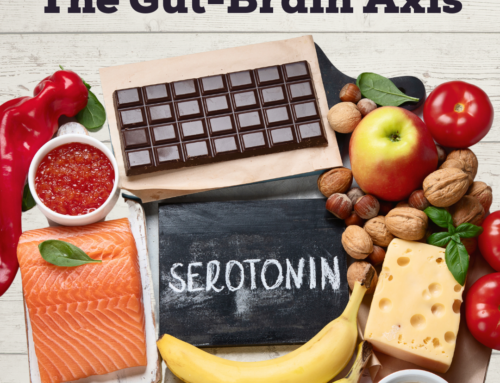Get to know the nutrition myths vs. facts!
There are so many diet fads and health myths in our society today, which drive dietitians crazy! These health statements are accepted by the mass because most people do not take the time to do the research and make their own opinions. Knowing the difference between dietary myths and facts is important. It also important to know the underlying research to understand how we can debunk these myths. Examples of popular myths are, first that fat makes us fat. A second is that low-fat foods help us lose weight. Lastly, is that carbs are “bad” and cause gain weight.
Society has this notion that fat causes them to gain weight quickly but in reality, fat is an important nutrient that our body needs to function. There is an important difference between trans and saturated fats in junk-food like pizza and fried food that can easily cause weight gain; and the unsaturated fats in fish and olive oil. These two different types of fat, can either promote inflammation, disease and weight gain or help prevent inflammation in our bodies. Omega-3 fatty acids, found in things like fish or olive, are an essential fatty acid that our bodies need to stay healthy. Omega-3’s contain anti-inflammatory properties helping keep us healthy by increasing the strength of our immune system to fight off disease. Even olive oil is increasing in its popularity because of the growing health benefits being discovered like phenolics. Overall, phenolics may help reduce oxidative damage to our DNA, and can play a role in protecting our lungs, breast, colon, and skin cancer development. Gaining weight can be caused from eating too much of any food, not just fat, but inflammatory omega-6 and saturated foods, like cookies, pizza and fried foods, should be limited in the diet.
The second myth to debunk is that low-fat foods help us lose weight. An article from Science Daily explained a research study led by the University of North Carolina on foods labeled “low-fat” resulted in little to no-nutritional content. Low-fat foods and labels can be deceiving because in place of the fat, tends to be more added sugars and sodium. Low-fat dressing, for example, although lower in fat can be much higher in sugar compared to regular version. Consumers expect the label “reduced”, to be healthier when they are actually consuming a lower quality food. Losing weight will not always be accomplished by opting for low-fat foods. A balanced diet with the right amount of fat, protein and carbohydrates with the right caloric intake can help you lose weight the right way.
The final myth to debunk is “carbs are bad and fattening” or “carbs will make me gain weight.” Carbohydrates should make up 45-65% of our diets, so what makes people believe that carbohydrates are bad or cause weight gain? Consuming an overall high amount of calories whether it is from fat, protein or carbohydrates, can cause an increase in weight. Any person will gain weight if they are consuming more than they are burning off, through exercise. Glucose, which is a sugar that comes from broken down carbohydrates, is needed by every type of cell in body for energy. In other words, every vital organ in the body, including the brain and nervous system, need carbs to function. The ‘initial’ weight loss a person experiences from eliminating carbs is mostly water loss. This is because the body begins to use body stores of carbohydrates (in the form of glycogen, from the liver and muscles). Around 3 g of water is needed to release 1 g of glycogen, so the rapid initial weight loss on a low-carbohydrate diet is mostly water, not body fat. Studies conducted by the University of North Carolina and the European Society of Cardiology, found risks associated with consuming a low-carb diet, including an increased risk of atherosclerosis, neural tube defects in babies, and premature deaths. Cutting out carbohydrates completely can be detrimental for overall function of the human body.
Restricting our bodies from fats, carbohydrates or proteins can be very harmful to our health. On the other hand, constantly eating all different fattening, high carb, high sugar foods is also very harmful to the body. Balance and knowledge is key when it comes to nutrition, no restrictions or overindulgences. Educating yourself on how to have a healthy balance of incorporating all these macronutrients into the diet; like keeping omega-6’s low, omega-3’s higher, eating lean meats, lots of fruit and veggies, and complex carbs, will help you personally debunk these dietary myths yourself.
Post written by: Ashley Thompson, Senior Ashland University Dietetics Student





